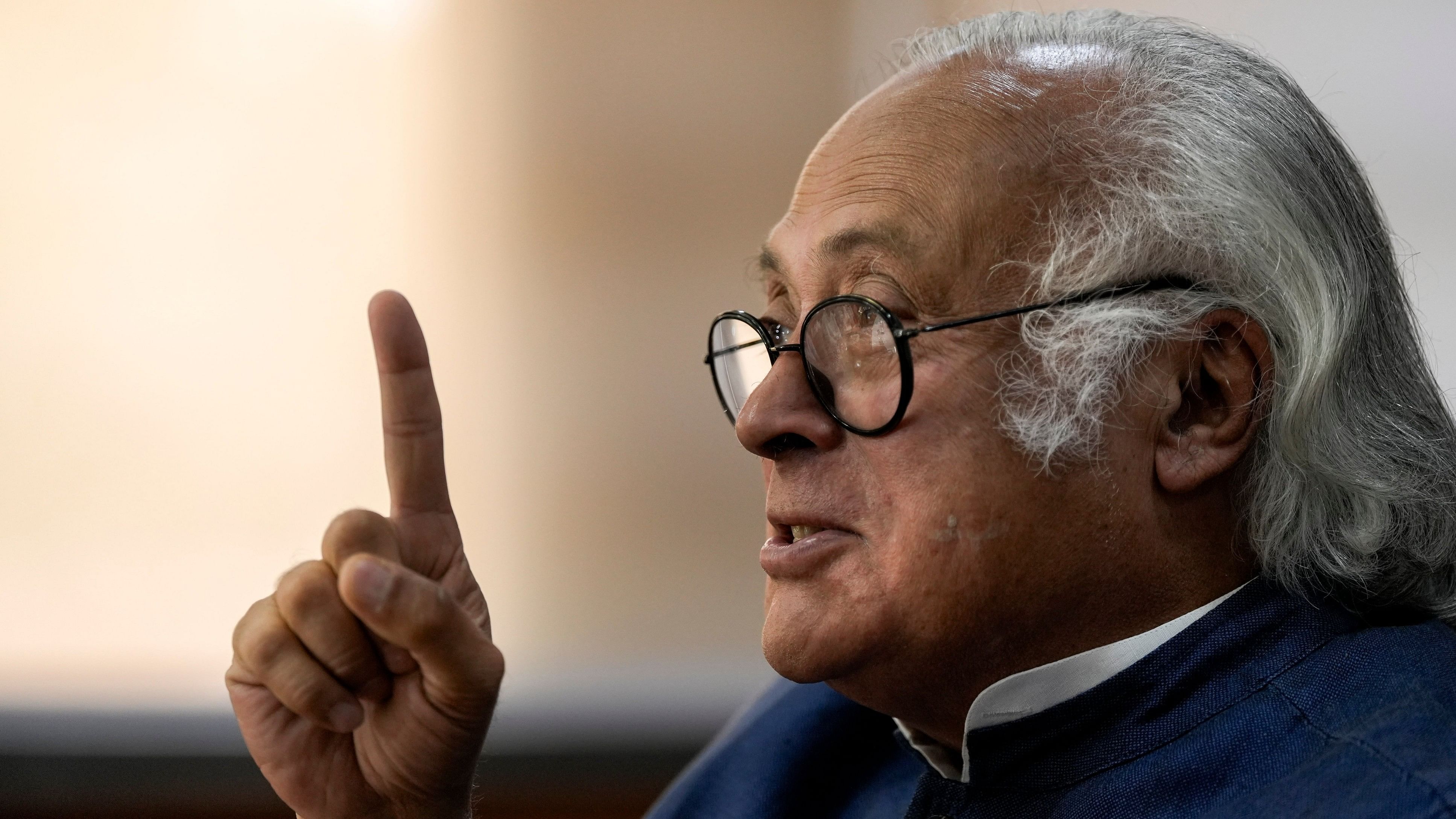
Congress leader Jairam Ramesh
Credit: PTI Photo
On a day Prime Minister Narendra Modi campaigned in Madhya Pradesh, the Congress on Sunday posed several questions to him asking why the probe into Mahakal Lok corruption "disappeared" and why the BJP-ruled state has the "highest" crime rate against Dalits.
Congress general secretary (communications) Jairam Ramesh also questioned the prime minister about his party's track record in "providing justice" to tribal communities in Madhya Pradesh.
"Today's questions for PM Modi as he heads to MP: Why has the Mahakal Lok corruption probe disappeared? MP has the highest crime rate against Dalits.
"Why is it increasing? Why is the MP State Government so firm on denying Adivasi communities justice," Ramesh asked in a post on X.
The Congress leader said Modi inaugurated the Rs 850-crore Mahakal Lok Corridor on October 11, 2022. Despite the hefty price tag, all it took was one storm in May 2023 to destroy six of the seven "mega statues" of the saptarishis within minutes, he alleged.
While the earlier Congress government had approved the plan for just Rs 350 crore, the cost increased to Rs 850 crore when the BJP came to power, he said. Yet, the flagship project was unable to withstand a single storm.
"The Lokayukta (anti-corruption ombudsman) of the MP government had taken suo moto cognisance of the matter and ordered an inquiry. Almost 10 months have now passed since the mishap.
"Whatever happened to the Lokayukta probe? Why has nobody been held responsible? Is PM Modi once again suppressing allegations of corruption against the BJP," he asked.
Ramesh alleged that Madhya Pradesh has the highest crime rate against Dalits in the country according to National Crime Records Bureau (NCRB) data.
In 2021 (the latest year for which data is available), the crime rate against SCs was 63.6 as compared to the national average of 25.3, he claimed, adding that the state also recorded high crime rates against Dalits in 2019 and 2020 - 46.7 and 60.8 against the national averages of 22.8 and 25 respectively.
"The rate of crimes against Dalits has actually increased year-on-year. The BJP has been in power in MP for more than two decades now. Why do Dalits have to increasingly fear for their safety," he asked.
Ramesh also alleged that the BJP governments in Madhya Pradesh have been among the "most anti-Adivasi Governments" as they have recognised no more than a tenth of the area for which community forests rights (CFRs) could be granted, causing economic hardship and revenue losses to Adivasi communities.
Despite consistent protests from local tribal communities, more than 900 'forest villages' continue to remain under the administrative control of the forest department, rather than being regular 'revenue villages' with far more freedoms, the Congress leader claimed.
Prime Minister Narendra Modi on Sunday said the Congress always insulted Dr Babasaheb Ambedkar, but his government has honoured him.
Dalit icon and architect of the Indian Constitution Ambedkar's birth anniversary is being celebrated on Sunday.
Addressing a rally in Madhya Pradesh's Hoshangabad, Modi also said the Congress never recognised the contribution of Adivasis (tribals), but the BJP government has honoured them.
Referring to Modi's rally in Karnataka, Ramesh claimed that there were corruption allegations against Janardhan Reddy, who recently joined the BJP, and Union Minister Shobha Karandlaje.
"Why did the Prime Minister take a leader under investigation for corruption into his Cabinet?" he said.
He also raised questions about the Bengaluru-Mysuru highway project and the alleged 'delay" in the release of assistance for drought relief measures to the state.